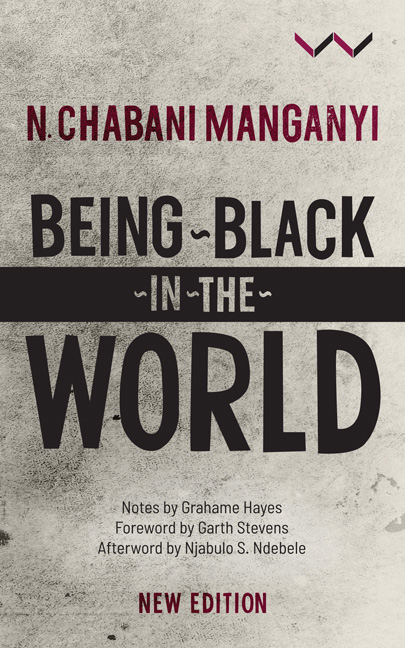2 - Black Consciousness
Published online by Cambridge University Press: 25 October 2019
Summary
The marriage between the words ‘black’ and ‘consciousness’ has in some instances led to panic and consternation in certain sections of the South African public. There have been arguments, debates and naggings. It all happened so quickly that some observers have even suggested that the bogey of swartgevaar was suddenly becoming real. After this marriage it even became customary for some people of liberal bent to suggest that black South Africans were now turning racialist. In these observations, there appeared at most times to be an insinuation that black people were becoming the ungrateful people that they are known to be by putting the liberals out of work. This kind of reaction is not entirely unexpected when one considers that South African liberalism can only be a form of narcissism – a form of white self-love. People who love themselves can pity only themselves, hardly anybody else.
What, in fact, these people were saying was that they have been fighting for the black cause for a long time, that it had since become second nature to them to do this pious work. How dare the black people disturb the scheme of things by wanting to do the spadework as well as the dirty work themselves. The extent of South African white fathering was dramatised recently when a black organisation demanded that the word ‘blacks’ be used instead of the notoriously insulting ‘non-Whites’ or ‘non-Europeans’. What happened at that time was very instructive. We were told in so many ways that we should not behave like a naughty little boy who changes his name without the explicit permission of his father. So many theoretical and semantic difficulties were immediately thrown in our faces. We were told even before the Indian population objected that they would feel insulted by being lumped into the black bag. That effort was a unique demonstration of the white people's expertise in hyperbole.
Leaving the white reaction aside for the moment, we may now turn our attention to the actual marriage that took place between the words ‘black’, ‘consciousness’ and ‘solidarity’. Since it has been suggested that these words might mean damnation or racialism or swartgevaar, it becomes necessary to inquire into some of their meanings as understood by us. I should not be misunderstood to be saying that all black people will agree with my understanding of these concepts.
- Type
- Chapter
- Information
- Being Black in the World , pp. 20 - 31Publisher: Wits University PressPrint publication year: 2019



